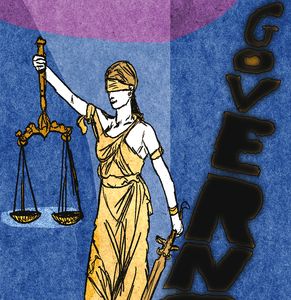It is telling that the two recent times the Supreme Court held a midnight hearing, it has been over cases of life and death—one concerning Yakub Memon, and the other, the Congress. But, as we celebrate the adage that “justice never sleeps” in our vibrant democracy, it is also important to analyse the prognosis of the damage done to our constitutional structures, the fundamental one of which is the doctrine of the separation of powers.
The foundational principle of such a separation is an understanding of roles that each organ plays in our constitutional structure. Therefore, before we come to call for the governor’s head, it is important to understand whether the court was correct in their intervention in a domain, which admittedly falls within the governor’s discretion.
In the case of Karnataka, Congress admitted in court to the discretionary nature of the exercise of Yeddyurappa’s appointment. But, more importantly, the court, while limiting the period set by the governor, did not mention that the order was mala fide. This has created a terrible precedent of forming governments in courtrooms, and not in Raj Bhawans, tossing the doctrine of separation of powers in the constitutional waste field.
The practice of providing an opportunity to the largest party to form the government is a relatively recent phenomenon that started in 1989, by the then President R.Venkataraman. The choice of the individual being appointed as the chief minister is not circumscribed by any constitutional provision to the effect that he must belong to the majority party in the Legislative Assembly, or even be the member of the Assembly at the time of appointment. The only limitation provided in the Constitution find reference in Clause (2) and (4) of Article 164 itself. Therefore, the element of discretion provided to the governor, is entirely on whom to appoint as chief minister.
As noted by the national commission to review the working of the constitution, the sole principle guiding the governor in the exercise of this limited discretion is to see that a party that is invited may command the widest majority, and, in cases where there is no single party in absolute majority, the element of discretion comes to the fore in identifying a post-electoral coalition, capable of government formation. The 1971 report of the governor’s committee reiterated that it was not incumbent upon the governor to invite the leader of the largest party to form the government, as the ultimate test was not the size of the party, but its ability to command the majority in the House. A test only capable of being passed on the floor of the House.
Thus, contrary to popular belief, the established convention in the Constitutional scheme is for the governor to use discretion in cases where no political party has absolute numbers, to discern which party or coalition would be capable of the smooth functioning of the democratic process. Thus, the role of the governors in both instances evinces such discretion, and establishes the norm of the governor’s duty to ensure that a government is necessarily formed to his approval, but to the capacity of holding the confidence of the House.
In an election of such fine margins where two seats were not contested, coupled with the existence of an unholy alliance, cheating the democratic mandate and the justification of the 15-day period, is found in the date of the election to be held on those two seats—May 31. The governor, following his constitutional duty to create a stable government, holding the confidence of the House while discerning the rationality of democratic process, was not only justified but also correct. The court on the contrary, despite creating a great precedent for judicial access, sadly failed in showcasing respect for another constitutional institution—that of the office of the governor. Every dark cloud has a silver lining, in this episode too, I presume one of the positives is the restoration of faith of the Congress party in the apex court of the country.
Lekhi is member of Parliament.
forthwriteml@gmail.com


